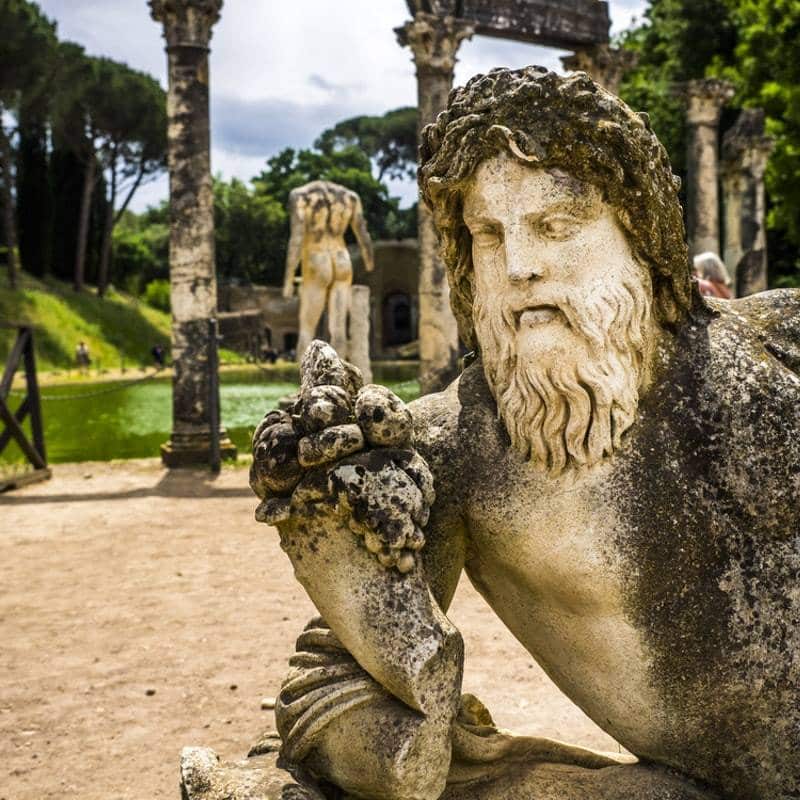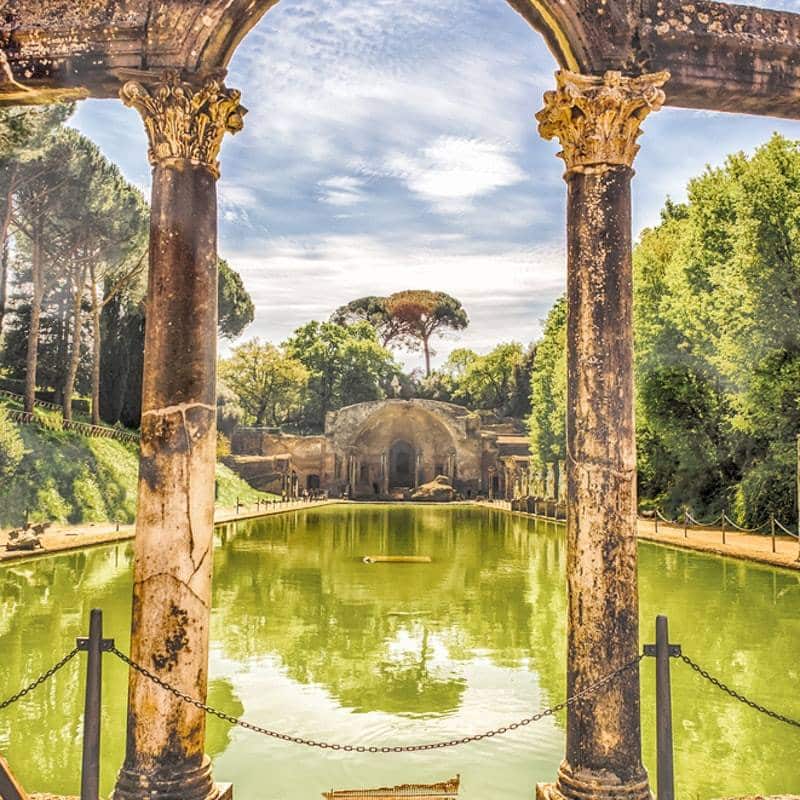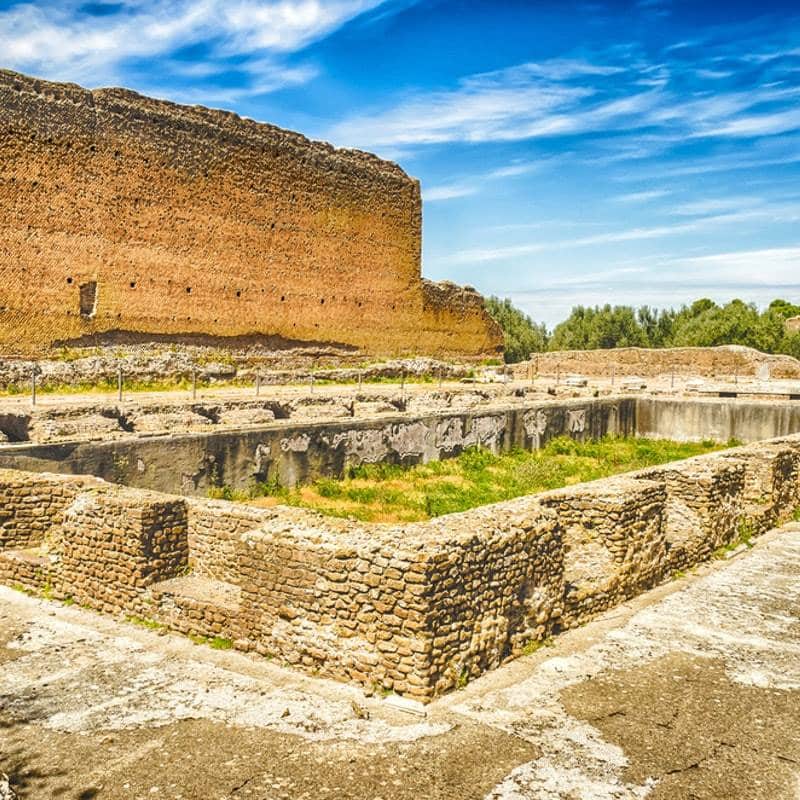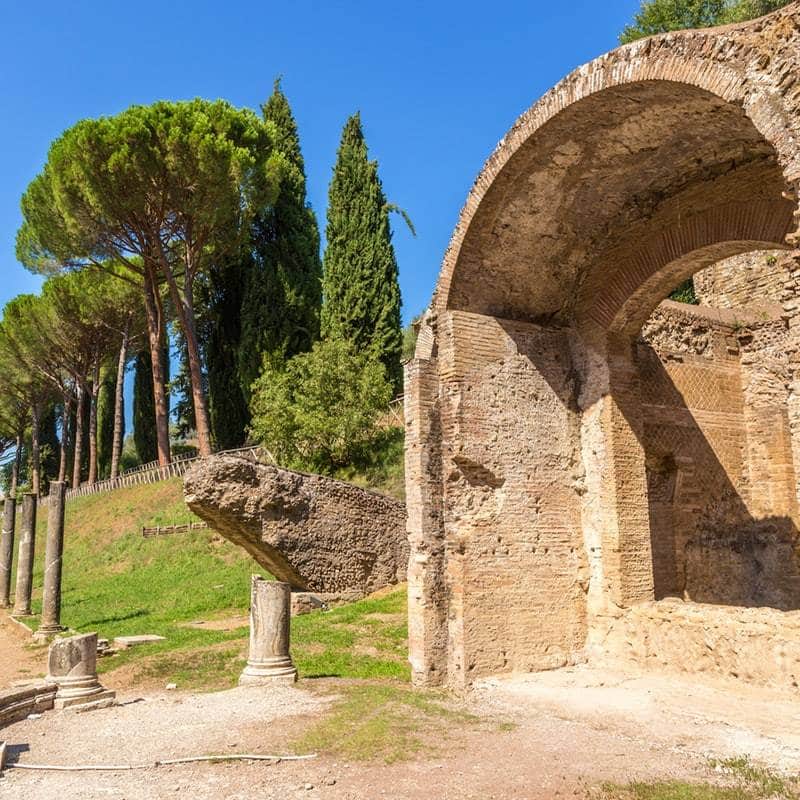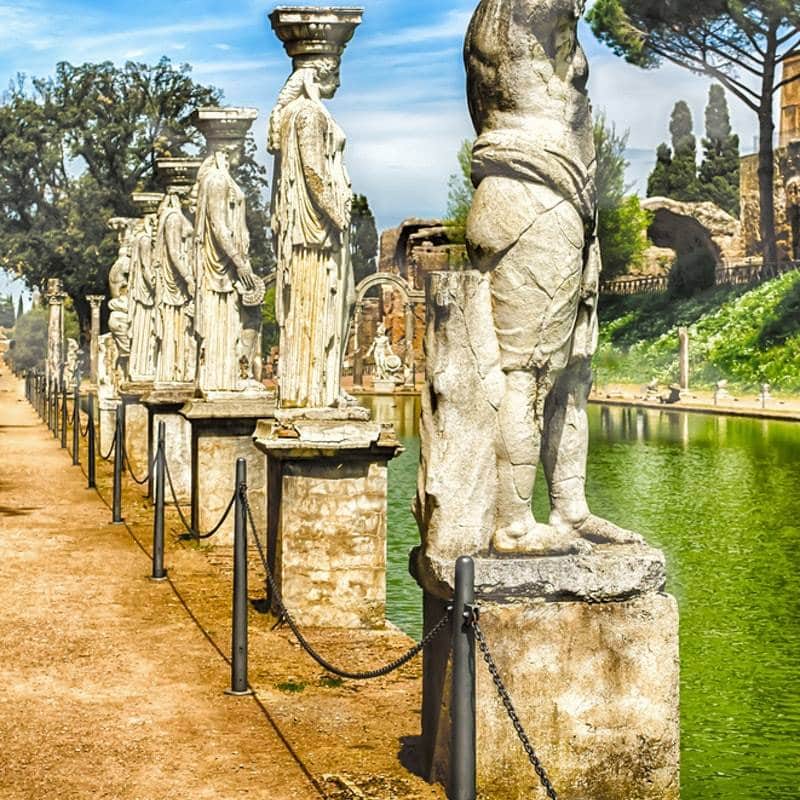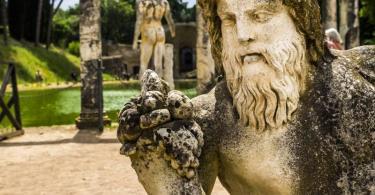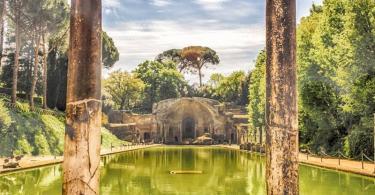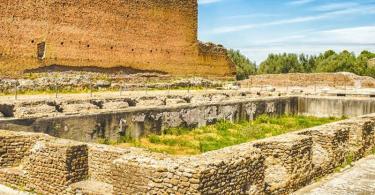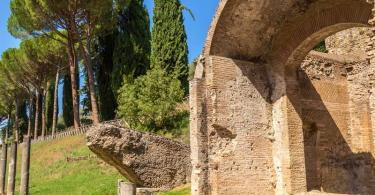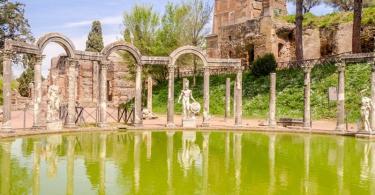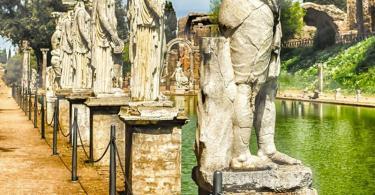58 Reviews
from €19.00 EUR
Seller: Tiqets
Step back in time and explore the lavish retreat of one of Rome’s most beloved emperors, Hadrian. Villa Adriana, nestled in the picturesque town of Tivoli, offers a unique insight into the luxurious lifestyle and architectural prowess of ancient Rome. Delve into the history and significance of this magnificent complex as you wander through its sprawling gardens, impressive ruins, and remarkable structures.
A Brief History of Hadrian’s Villa
Hadrian, renowned for his love of Greek culture and humanist ideals, commissioned the construction of Hadrian’s Villa in the early 2nd century AD. Initially designed as a retreat, the villa soon became his official residence around 128 AD. Governed from this tranquil location, Hadrian’s court enjoyed the serenity of a haven just outside the bustling city of Rome.
Spanning over 80 hectares, Hadrian’s Villa showcases a harmonious blend of Egyptian, Greek, and Roman architectural elements. This ‘ideal city’ is a testament to Hadrian’s appreciation of various cultures and his aspiration to incorporate their finest features into his residence.
Exploring the Marvels of Hadrian’s Villa
As you venture through the vast expanse of Hadrian’s Villa, you will encounter a multitude of fascinating structures and remnants that once exemplified the height of ancient Roman luxury. Here are some of the highlights you won’t want to miss:
- Maritime Theater: The Maritime Theater, or Teatro Marittimo, is an architectural gem that once served as Emperor Hadrian’s private residence. This artificial island, encircled by a moat, is a true marvel of ancient engineering. Admire the well-preserved remains and imagine the opulence of the emperor’s secluded sanctuary.
- Canopus: The Canopus, a grand rectangular pool, is among the most striking features of Hadrian’s Villa. Surrounded by magnificent sculptures, this large body of water offers an insight into the leisurely activities enjoyed by Hadrian and his court. The Canopus was not only an aesthetic masterpiece but also a symbol of the villa’s grandeur.
- The Antinoeion: Dedicated to Hadrian’s beloved companion Antinous, the Antinoeion is a tomb or temple erected in his memory after he tragically drowned in Egypt. This poignant monument offers a glimpse into the personal life of the emperor and his deep affection for Antinous.
Immerse Yourself in the Splendor of Villa Adriana’s Gardens and Arcades
Villa Adriana’s extensive gardens and arcades provide the perfect setting for a leisurely stroll, taking in the breathtaking beauty of this ancient estate. As you meander through the lush greenery, admire the intricate mosaics, grand fountains, and skillfully crafted sculptures that adorn the landscape. The harmonious fusion of art and nature at Hadrian’s Villa creates an unforgettable experience for all who visit.
Enhance Your Visit with Pemcards Postcard
To truly capture the essence of your Hadrian’s Villa experience, make sure to take advantage of the Pemcards app. With your ticket, you will receive a free code that allows you to create a personalized postcard featuring your own travel photo. Simply download the Pemcards app and enter the code to share a tangible memento of your journey with friends and family.
Cancellations and changes are not possible for this ticket.
On returning from his eastern provinces in AD 126, Hadrian decided to build a pleasure villa at Tivoli where he could re-create all the wonders he had encountered in the course of his travels.
Work went ahead at great speed, so that by 134 the Villa Adriana was practically complete. To walk among the ruins in their setting of cypresses and pines is to take an erudite journey through the history of classical architecture.
The reproduction of an Athenian monument (the Pecile or Stoa Poikile) and the evocation of the Vale of Tempe reveal the emperor’s fascination for everything Greek. This peace-loving sovereign had also been struck by the wonders of Egypt; a canal (the Canopus) running through a manmade valley recalls the waterway connecting Alexandria with the Temple of Serapis at Canope.
Hadrian was particularly fond of this feature; its banks were lined with statues – copies of the caryatids from the Erechtheion in Athens – whose reflections were captured in the water below. It also reminded him of his young favourite Antinoiis, who had drowned in the Nile. The so-called Maritime Theatre throws further light on Hadrian’s artistic refinement and on his character: the emperor loved to retire to this little island which was accessible only by miniature swing bridges and where he could enjoy a solitude ideal for study and contemplation.
from €40.00 EUR
Seller: Tiqets
from €65.00 EUR
Duration: 7 Hours
Organized by: Enjoy Rome
2.040 Reviews
from €10.00 EUR
Seller: Tiqets
293 Reviews
from €92.00 EUR
Duration: 3 hours
Organized by: Parisa in Rome


